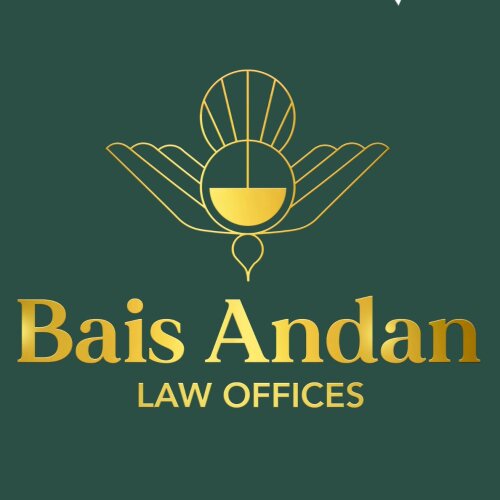Best Arrests & Searches Lawyers in Angeles City
Share your needs with us, get contacted by law firms.
Free. Takes 2 min.
List of the best lawyers in Angeles City, Philippines
About Arrests & Searches Law in Angeles City, Philippines
Arrests and searches in Angeles City, Philippines, are primarily governed by the Philippine Constitution and the Revised Penal Code, along with other pertinent laws. These lay the groundwork for the rules and regulations concerning the conduct of law enforcement officers when making arrests and conducting searches. The legal framework ensures the protection of individuals' rights while allowing the authorities to perform their duties effectively. Understanding these legal provisions is crucial to safeguarding your rights and navigating the legal system effectively.
Why You May Need a Lawyer
There are several situations where you may need legal assistance related to arrests and searches in Angeles City. Common scenarios include being arrested or detained by law enforcement officers, having your personal property searched without a warrant, or facing charges where illegal search and seizure rights might have been violated. Legal representation is crucial to ensure your rights are preserved throughout the legal process, minimizing potential legal consequences and providing essential guidance and support.
Local Laws Overview
Key aspects of local laws related to arrests and searches in Angeles City include:
- Warrant Requirement: Generally, a warrant is required for arrests and searches, except in certain circumstances like flagrante delicto, hot pursuit, or the search of a moving vehicle.
- Right to Due Process: The Constitution guarantees the right to due process, which means you should be treated fairly and lawfully throughout the arrest and search proceedings.
- Miranda Rights: Upon arrest, an individual must be informed of their rights, including the right to remain silent and the right to legal counsel.
- Exclusionary Rule: Evidence obtained through unlawful means may be challenged and possibly excluded from any legal proceedings.
Frequently Asked Questions
What should I do if I am arrested in Angeles City?
If you are arrested, remain calm and request to speak with a lawyer immediately. Do not resist arrest, and remember your right to remain silent until your legal adviser is present.
Can the police search my home without a warrant?
Generally, the police need a warrant to search your home; however, there are exceptions such as emergencies, consent, or if evidence could be destroyed imminently.
What rights do I have during an arrest?
During an arrest, you have the right to be informed of the charges against you, the right to remain silent, and the right to a lawyer.
Are there any specific actions considered illegal during a search?
Yes, conducting a search without a proper warrant (unless under exceptional cases), planting evidence, or using coercion during a search are considered unlawful.
What is the procedure for conducting a legal search in Angeles City?
The procedure includes law enforcement officers obtaining a search warrant from a judge, unless the situation falls under defined exceptions, and informing the person in charge or controlling the premises.
What happens if my rights were violated during an arrest?
If your rights were violated, you could challenge the arrest or search in court, which could lead to the exclusion of evidence or even dismissal of charges.
How can I lodge a complaint against unlawful arrest or search?
You can file a complaint with the Internal Affairs Service of the Philippine National Police or seek assistance from the Commission on Human Rights.
Do I need a lawyer if I believe the search was illegal?
Yes, a lawyer can help you understand your rights, evaluate the legality of the search, and assist in filing any necessary legal actions.
Can evidence found during an illegal search be used in court?
Generally, evidence found during an illegal search can be deemed inadmissible in court under the exclusionary rule, which aims to deter unlawful police conduct.
What is the penalty for resisting arrest?
Resisting arrest can lead to additional charges such as resisting or disobeying a person in authority, leading to legal penalties as set out in the Revised Penal Code.
Additional Resources
For more information or assistance, you can refer to the following resources:
- Philippine National Police (PNP): Offers guidance and handles complaints related to police conduct.
- Public Attorney's Office (PAO): Provides free legal assistance to underprivileged sectors.
- Commission on Human Rights (CHR): Addresses human rights violations and provides legal support.
- Integrated Bar of the Philippines (IBP): Offers legal aid and assistance services to those in need of legal help.
Next Steps
If you require legal assistance concerning arrests and searches in Angeles City, consider the following steps:
- Contact a local attorney specializing in criminal law to discuss your case and understand your options.
- Gather all documentation related to the incident, including police reports, arrest records, and any correspondence.
- Exercise your right to remain silent and avoid discussing your case with others until you have consulted your lawyer.
- Ensure you understand your rights and the legal process to make informed decisions based on your lawyer's advice.
Lawzana helps you find the best lawyers and law firms in Angeles City through a curated and pre-screened list of qualified legal professionals. Our platform offers rankings and detailed profiles of attorneys and law firms, allowing you to compare based on practice areas, including Arrests & Searches, experience, and client feedback.
Each profile includes a description of the firm's areas of practice, client reviews, team members and partners, year of establishment, spoken languages, office locations, contact information, social media presence, and any published articles or resources. Most firms on our platform speak English and are experienced in both local and international legal matters.
Get a quote from top-rated law firms in Angeles City, Philippines — quickly, securely, and without unnecessary hassle.
Disclaimer:
The information provided on this page is for general informational purposes only and does not constitute legal advice. While we strive to ensure the accuracy and relevance of the content, legal information may change over time, and interpretations of the law can vary. You should always consult with a qualified legal professional for advice specific to your situation.
We disclaim all liability for actions taken or not taken based on the content of this page. If you believe any information is incorrect or outdated, please contact us, and we will review and update it where appropriate.










